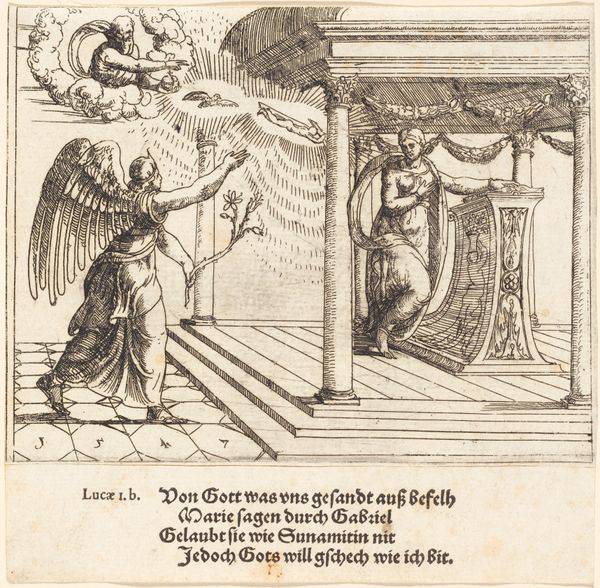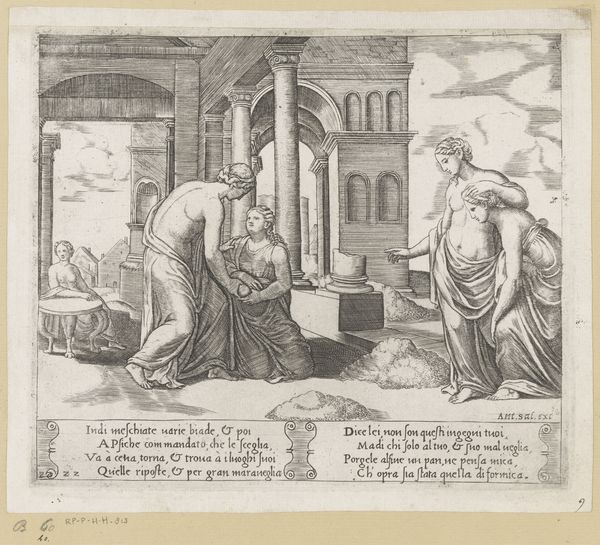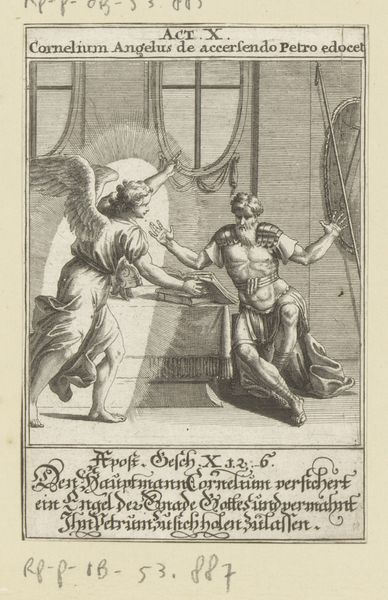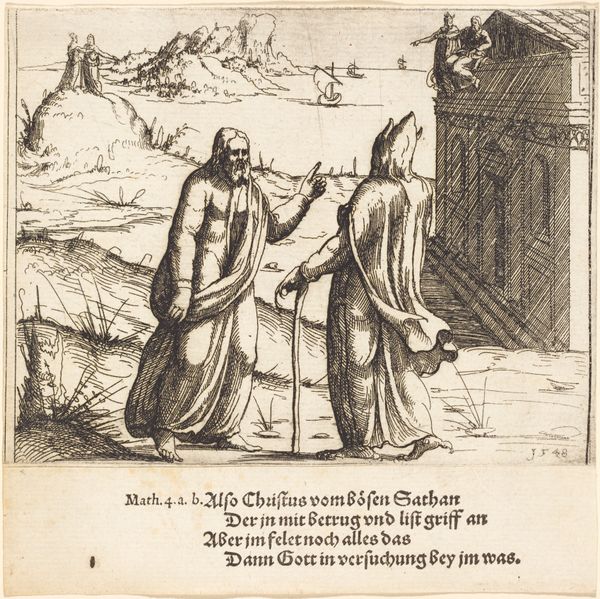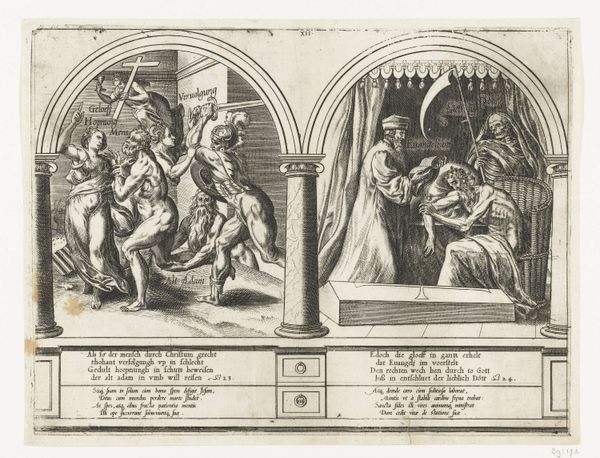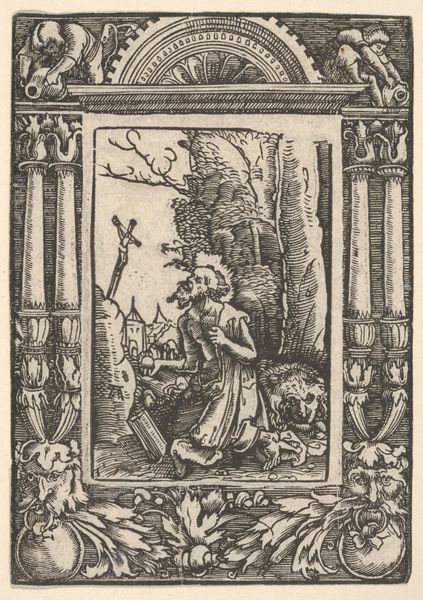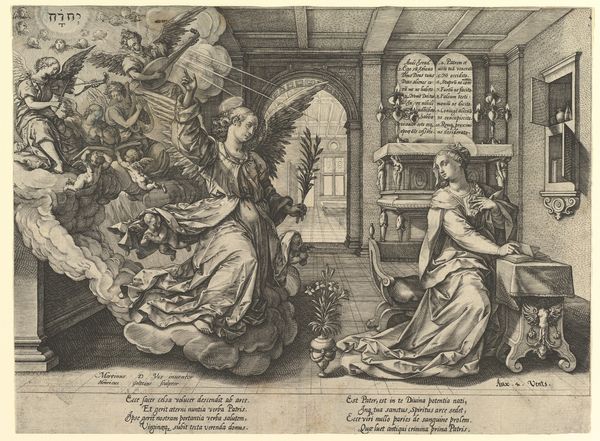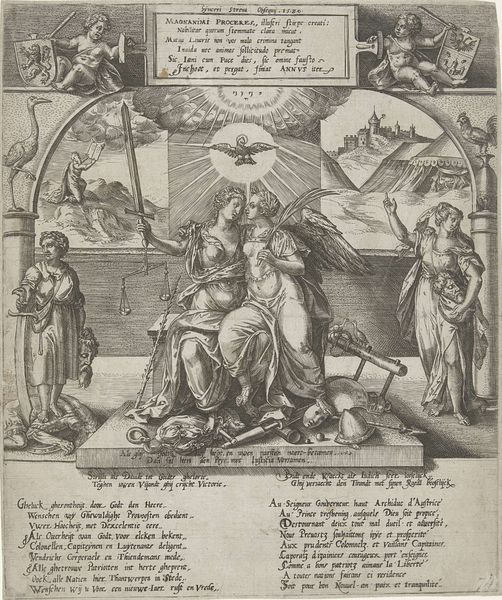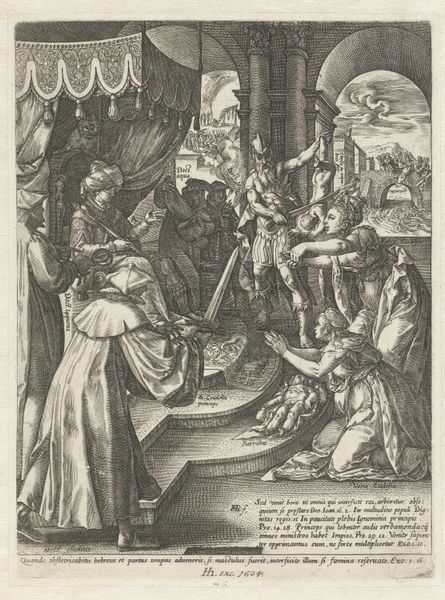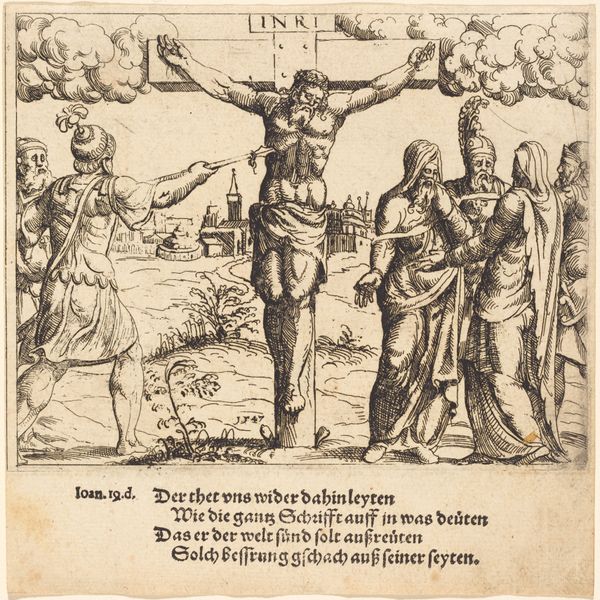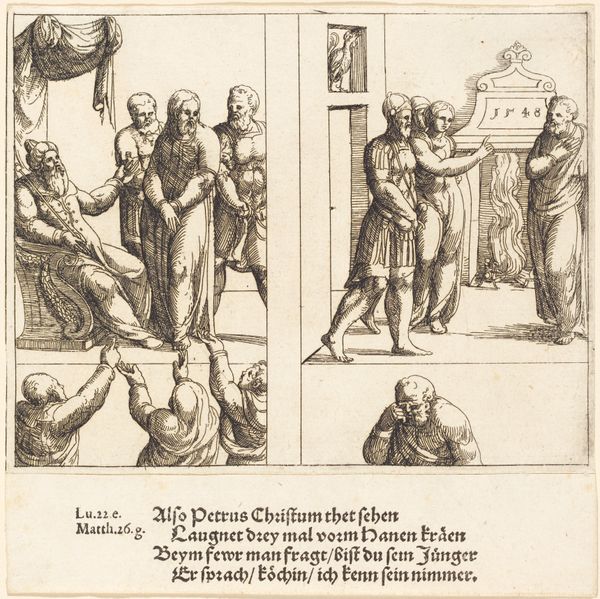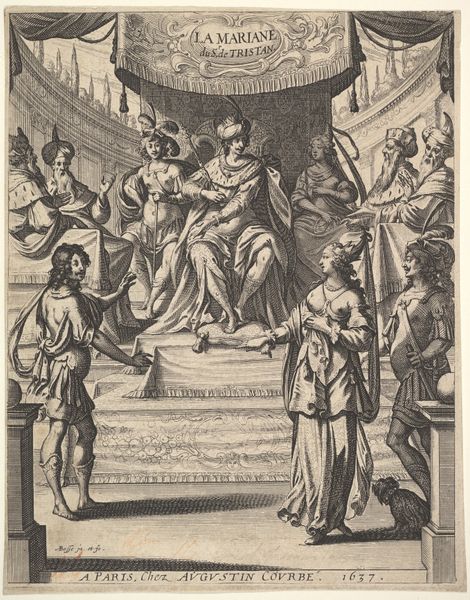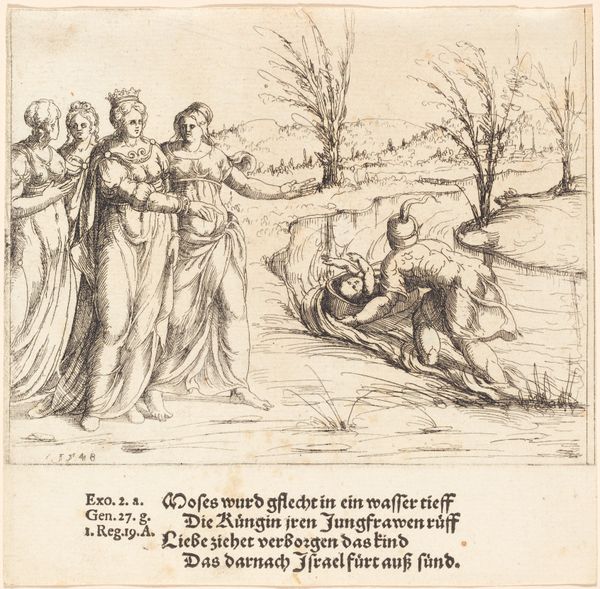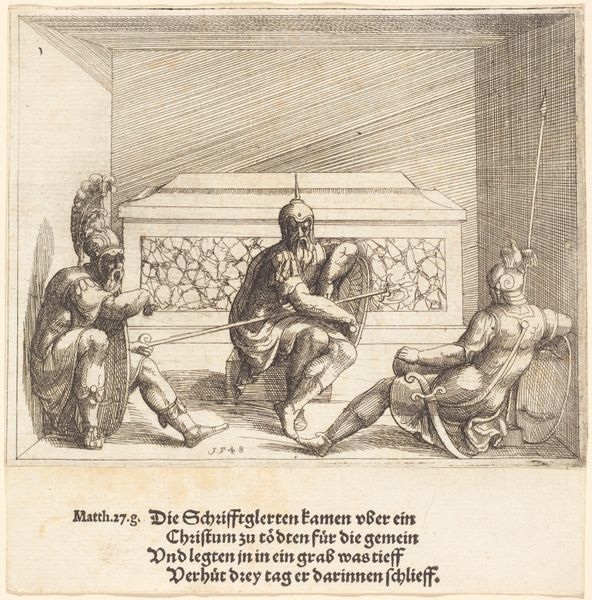
print, engraving
# print
#
figuration
#
line
#
history-painting
#
northern-renaissance
#
engraving
Copyright: National Gallery of Art: CC0 1.0
Augustin Hirschvogel created this engraving, The Annunciation, in 1548 using metal, acid, and ink. Engraving is an indirect process, meaning that the artist did not directly manipulate the printing surface. The artist creates an image on a metal plate with acid, and uses ink to transfer the image to paper. The resulting image is characterized by fine, precise lines. This intaglio printmaking process involved skilled labor and specialized knowledge. Hirschvogel's delicate lines bring the divine scene to life, emphasizing the texture of the angel's wings and the folds of Mary's gown. The medium lends itself well to detailed and controlled images, fitting for this biblical scene. The labor-intensive nature of engraving also speaks to the cultural significance of the image, reflecting a time when craftsmanship and artistry were deeply intertwined.
Comments
No comments
Be the first to comment and join the conversation on the ultimate creative platform.
